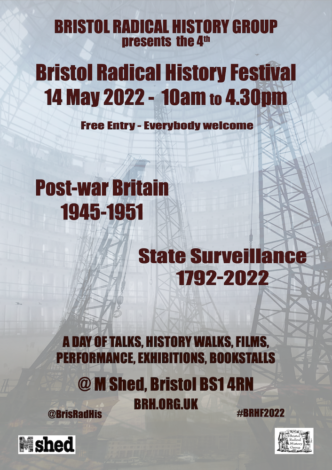‘Spies and Troublemakers in Wales – 1914-1918’
Aled Eirug author of The Opposition to the Great War in Wales 1914-1918 (UWP, 2018) looks at the activity of intelligence agencies in South Wales during World War One, and the blacklisting of activists within the peace and labour movements.


